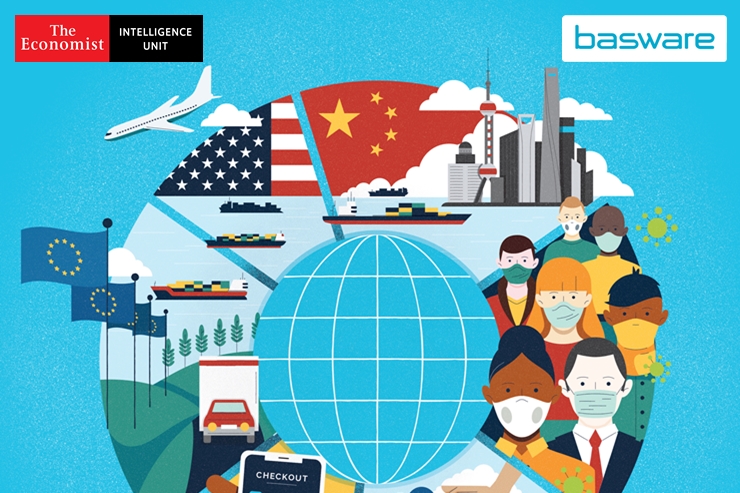The coming 12 months are poised to be volatile for the global economy, but especially so for international trade. The spread of the coronavirus has affected production in Asia, leading to disrupted supply chains across the world and depression of consumer demand.
As a result, hesitant optimism about GDP growth at the start of 2020 has given way to a widespread consensus that the global economy will contract much more sharply than during the 2008-09 global financial crisis.
Commissioned by Basware, the Economist Intelligence Unit has conducted in-depth interviews with global trade experts to discuss the key factors that will drive global trade and, by extension, business transactions over the coming year. The following five drivers were unanimously identified:
- Covid-19
- US-China trade relations
- US-EU trade relations
- Rising non-tariff protectionism
- Taxing digital trade
These topics are closely intertwined and their overlapping nature means their combined impact is difficult to anticipate. Global businesses are now facing the challenge of being adaptive in their supply chains and responsive in their financial operations at a time of great uncertainty.
However, amid considerable disruption there is also an opportunity for companies to adapt to match the new environment by introducing new processes and techniques that leave them more agile, sustainable and impervious to crises than before.
Download full report HERE.


